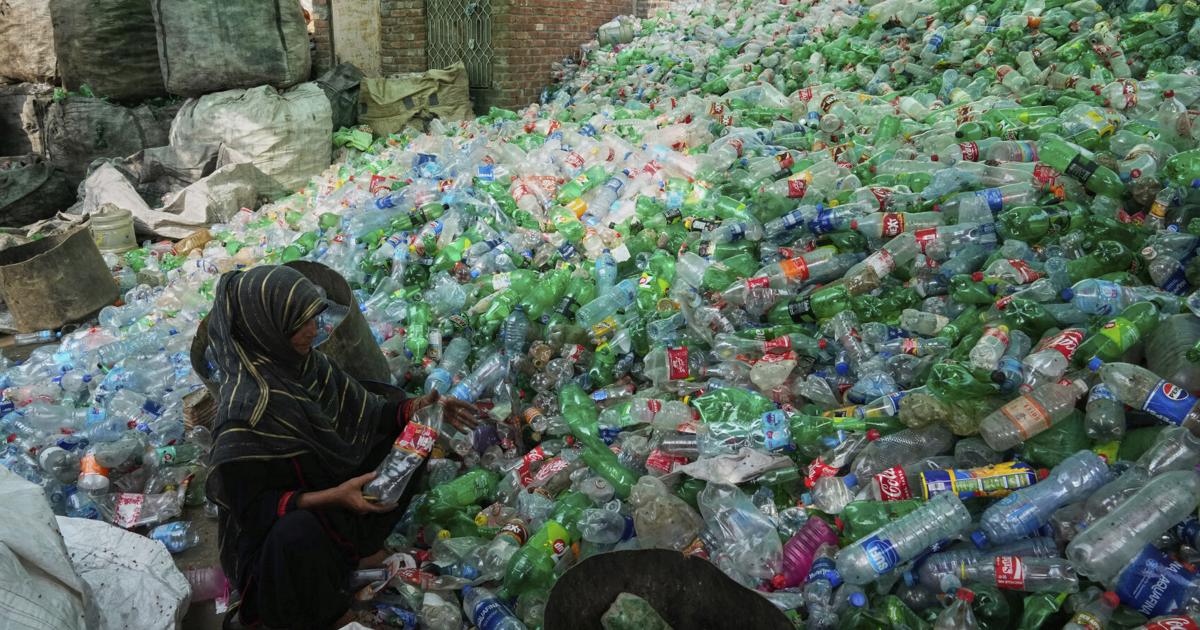
News
August 20, 2025
Failure of talks for plastic treaty turn focus back to reduce, reuse, recycle. How's that going?
As many as 100 countries sought caps on plastic production, powerful oil-producing nations like Saudi Arabia and the United States stood against them.
**Failure of talks for plastic treaty turn focus back to reduce, reuse, recycle. How's that going?**
Hopes for a groundbreaking global treaty to curb plastic pollution have been dashed, at least for now, as international negotiations recently concluded without agreement on key issues. While over 100 nations pushed for legally binding caps on plastic production – a move seen as crucial to tackling the escalating crisis – resistance from powerful oil-producing countries, including Saudi Arabia and the United States, ultimately stalled progress.
The failure to reach a consensus has left many environmental advocates and participating nations deeply disappointed. The proposed treaty aimed to address the entire lifecycle of plastics, from production and design to waste management and recycling. However, the sticking point proved to be the fundamental question of limiting the sheer volume of plastic being produced globally.
With the prospect of a global cap on production seemingly off the table, at least in the short term, the spotlight is now firmly back on the familiar mantra of "reduce, reuse, recycle." But the question looms large: how effective have these strategies been in combating the plastic deluge that threatens our oceans, ecosystems, and even our own health?
While recycling initiatives have gained traction in many communities, the reality is that a significant portion of plastic waste still ends up in landfills or polluting the environment. The complexity of plastic types and the lack of standardized recycling processes across different regions contribute to the problem. Moreover, the demand for recycled plastic often lags behind the supply, making it economically less attractive compared to virgin plastic derived from fossil fuels.
Efforts to reduce plastic consumption, such as promoting reusable bags, water bottles, and food containers, have also faced challenges. Changing consumer habits and overcoming the convenience of single-use plastics require sustained public awareness campaigns and supportive policies.
The failure of the treaty talks underscores the urgent need for a renewed and intensified focus on these fundamental principles. It also highlights the importance of innovation in developing alternative materials and more effective waste management technologies. The road to tackling plastic pollution may be more challenging than initially hoped, but the need for action remains as critical as ever. The world must now redouble its efforts to reduce, reuse, and recycle, while simultaneously exploring new and innovative solutions to address this pressing global crisis.
Hopes for a groundbreaking global treaty to curb plastic pollution have been dashed, at least for now, as international negotiations recently concluded without agreement on key issues. While over 100 nations pushed for legally binding caps on plastic production – a move seen as crucial to tackling the escalating crisis – resistance from powerful oil-producing countries, including Saudi Arabia and the United States, ultimately stalled progress.
The failure to reach a consensus has left many environmental advocates and participating nations deeply disappointed. The proposed treaty aimed to address the entire lifecycle of plastics, from production and design to waste management and recycling. However, the sticking point proved to be the fundamental question of limiting the sheer volume of plastic being produced globally.
With the prospect of a global cap on production seemingly off the table, at least in the short term, the spotlight is now firmly back on the familiar mantra of "reduce, reuse, recycle." But the question looms large: how effective have these strategies been in combating the plastic deluge that threatens our oceans, ecosystems, and even our own health?
While recycling initiatives have gained traction in many communities, the reality is that a significant portion of plastic waste still ends up in landfills or polluting the environment. The complexity of plastic types and the lack of standardized recycling processes across different regions contribute to the problem. Moreover, the demand for recycled plastic often lags behind the supply, making it economically less attractive compared to virgin plastic derived from fossil fuels.
Efforts to reduce plastic consumption, such as promoting reusable bags, water bottles, and food containers, have also faced challenges. Changing consumer habits and overcoming the convenience of single-use plastics require sustained public awareness campaigns and supportive policies.
The failure of the treaty talks underscores the urgent need for a renewed and intensified focus on these fundamental principles. It also highlights the importance of innovation in developing alternative materials and more effective waste management technologies. The road to tackling plastic pollution may be more challenging than initially hoped, but the need for action remains as critical as ever. The world must now redouble its efforts to reduce, reuse, and recycle, while simultaneously exploring new and innovative solutions to address this pressing global crisis.
Category:
World